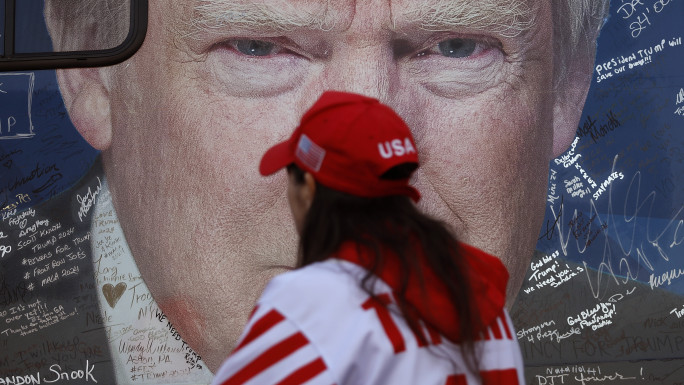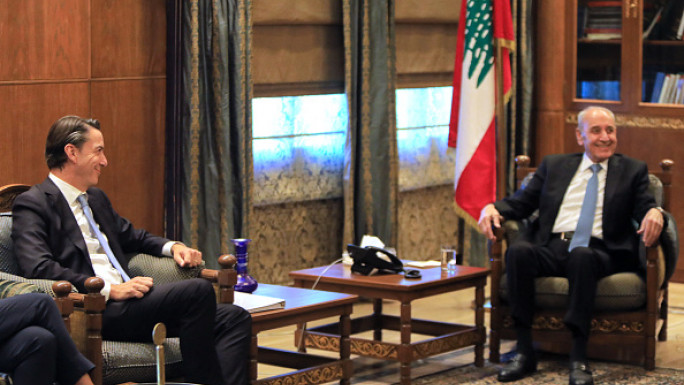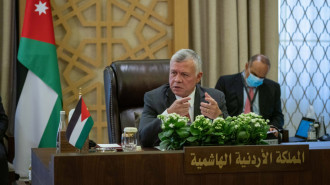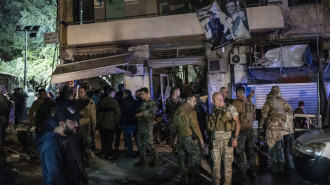Deepfake social media account used to attack Palestinian academic, experts say
Deepfake social media account used to attack Palestinian academic, experts say
A fake social media account of a Jewish man has been used to attack a Palestinian academic in a new frontier of disinformation.
3 min read
It is a new form of disinformation [Getty]
A fake social media account – attached to a fabricated personality – has been causing havoc for a Palestinian academic who was accused of being a “terrorist sympathiser”.
A profile of Oliver Taylor, an alleged student at the University of Birmingham, who has bylines in notable Jewish publications the Jerusalem Post and the Times of Israel, has been deemed a “deepfake” by experts who spoke to Reuters.
Taylor’s online profiles contain a smiling photo of a man and describe him as a coffee lover, raised in a Jewish home.
His online activity suggests an active interest in anti-Semitism and Jewish affairs, and six pieces of freelance editorial work and blogposts are attributed to his name.
However, there is no proof that Oliver Taylor exists, and experts who scrutinised his photograph and online presence are sure that the profile is fake.
The University of Birmingham says it has no record of him, and the newspapers he wrote pieces for cannot verify his identity; Reuters called the UK number he supplied to editors, which came back with an error message, and he did not respond the messages left at the Gmail address he used.
His photograph, experts say, is a high quality forgery.
The deepfake came to light after London academic Mazen Masri alerted Reuters.
In an article in US Jewish newspaper The Algemeiner, Taylor had accused Masri and his wife, Palestinian rights campaigner Ryvka Barnard, of being “known terrorist sympathisers.”
|
Masri and his wife both vehemently denied the accusation, and after Masri found Taylor’s university photo, he thought something about the photo “seemed off”.
Six experts were interviewed by Reuters, and all say the image “has the characteristics of a deepfake”.
“The distortion and inconsistencies in the background are a tell-tale sign of a synthesized image, as are a few glitches around his neck and collar,” said digital image forensics pioneer Hany Farid, who teaches at the University of California, Berkeley.
Artist Mario Klingemann, who regularly uses deepfakes in his work, said the photo “has all the hallmarks.”
“I’m 100 percent sure,” he said.
Deepfakes like Taylor are dangerous because they can help build “a totally untraceable identity,” said Dan Brahmy, whose Israel-based startup Cyabra specialises in detecting such images.
According to the publication, Taylor did not have an online presence until he started writing articles. The University of Birmingham said in a statement it could not find “any record of this individual using these details” and editors for the newspapers he wrote for said he had cold pitched stories over email and did not ask for payment.
The Algemeiner and the Times of Israel deleted his articles, and Taylor emailed both papers in protest, but after an editor challenged Taylor for proof of identity, subsequent emails were ignored.
“We’re not a counterintelligence operation,” Algemeiner Editor-in-chief Dovid Efune said, adding that the paper had introduced new safeguards since.
The Jerusalem Post and Arutz Sheva kept Taylor’s articles online, but the latter removed the “terrorist sympathisers” reference after a complaint from Masri and Barnard.





 Follow the Middle East's top stories in English at The New Arab on Google News
Follow the Middle East's top stories in English at The New Arab on Google News


